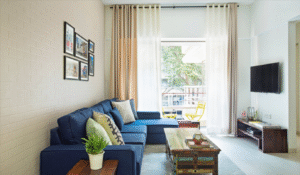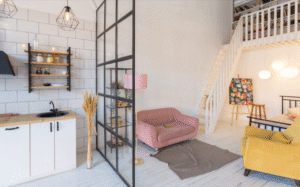How Can You Improve The Air Quality In Your Home?
You probably think that the air inside your home is much safer than the air outdoors, however this isn’t necessarily the case. In fact for many people, the air quality in their homes is much worse than that in the great outdoors. Heating systems make the air indoors stale while dust mites are increased and mold spores can start to circulate through the home. If you don’t open your windows and doors, you could find that you start to suffer from allergies and respiratory difficulties due to the contaminants and pollutants lurking in the home.
If you make the effort to make the quality of your indoor air better, you could avoid any unwanted flare ups of allergy symptoms and asthma so you can breathe more easily. While getting rid of every allergen in the home is difficult, it’s quite simple to reduce the amount of allergens and reduce your exposure to those contaminants by simply make a couple of changes. Here are some top tips to help you improve your air quality at home.
Cleanliness Is Key
Clean homes are healthier homes. This is because good hygiene indoors cuts down significantly on animal dander and dust – two things which contribute to allergies and breathing problems. Focus on cleaning strategies which reduce pet dander, dust and mold which lurk in the home. Vacuum your carpets and rugs weekly at a minimum using a vacuum cleaner which has a HEPA filter integrated into it. Whenever possible, get rid of carpets and use hard flooring instead as this cuts down on allergens. Wash your drapes, bedding and other textiles which also attract allergens. This is especially the case if you’ve got pets. Wash your textiles in hot water of 130 degrees Fahrenheit or more. You may also consider investing in some dust mite-proof pillow covers and dust mite protected mattresses. Get rid of any excess clutter in the home. Unnecessary items trap and hold dust and this could cause allergic reactions.
Keep Plants Outdoors
If you have a sensitivity to allergens, you should keep plants outdoors. Although pot plants indoors are attractive, they can also attract mold which can then trigger allergic reactions. Some plants may help to improve the quality of the air indoors since they’re able to release oxygen into the environment, however if you suffer from allergies, you could find that houseplants are a trigger.
Change Air Filters
If you’ve got forced air heating in your home, you’ll need to make sure that you change your filters on a regular basis. Use electrostatic filters which trap airborne irritants and dust inside rather than allowing them to recirculate through the home. Clean your ducts regularly to remove any trapped dust and contaminants.
Purify Your Air
When you suffer from allergens inside your home and it’s impossible to prevent the problem – perhaps you’re allergic to pet dander but don’t want to give away your pet – an air purifier could be the solution you’re looking for. These devices capture irritants like dust and pollen from the air and stop your symptoms from being triggered. If you have a damp problem in your home which is causing mildew and mold, these are also triggers for allergic reactions and respiratory difficulties. One way to eradicate this problem is to install a dehumidifier. There are several types of dehumidifier available. Some are suitable for single rooms like attics and basements which suffer from a damp problem while others can be used to keep the whole house dry and mold free. While you’re thinking about keeping the air pure in your home, think about installing exhaust fans in your kitchen and bathroom. This will ensure that moist air can easily escape when you’re cooking, bathing or showering. This will improve air quality in this damp spaces while also guarding against the serious issue of mold and mildew which may otherwise be a problem in such spaces.
By following this expert advice, you should find that the air quality inside your home is much better all year round. You and your family will certainly be able to breathe much more easily when your indoor air is as pure as possible.






